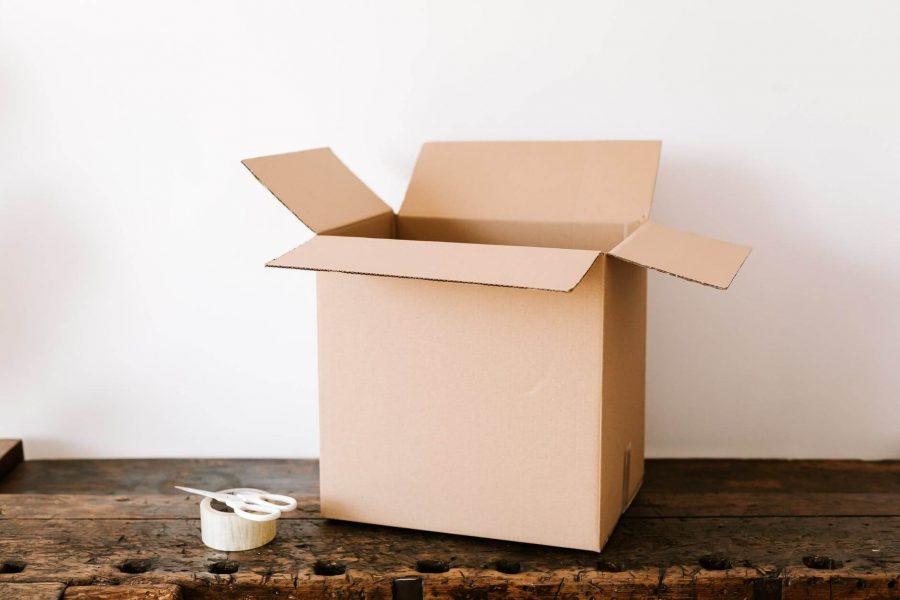

From Start to Finish – A Comprehensive Moving Checklist
Posted in Moving Essentials,Moving Tips & Tricks on October 17, 2023
Moving cross country can be an exciting adventure, but it also comes with its fair share of challenges and tasks to manage. The process of packing up your life and settling into a new place can be overwhelming without proper planning. That’s where our comprehensive moving checklist comes in. From the initial stages of decluttering and organizing to the final moments of unpacking and settling in, this guide is a roadmap to a smooth and stress-free relocation.
Plan the relocation 2-3 months in advance and choose a reliable relocation company by seeking recommendations and comparing quotes. Estimate the number of boxes and supplies needed based on the inventory. Declutter efficiently, going room by room to reduce the volume of items. It saves time and money while ensuring a smooth transition.
Why Do You Need a Moving Checklist?
A checklist for moving is an indispensable tool when embarking on the journey of relocating to a new home. It serves as a strategic roadmap, helping you stay organized and efficient throughout the entire relocation process. Moving across country can be a chaotic and overwhelming experience, with countless details to manage, timelines to meet, and decisions to make. Without a well-structured checklist, important tasks can slip through the cracks, leading to unnecessary relocation stress and complications.
Whether you’re a seasoned mover or a first-timer, having a comprehensive moving-out checklist ensures that you don’t miss any critical steps, from the early planning stages to the final moments of settling into the new abode. It brings peace of mind, clarity, and control to an otherwise daunting endeavor, making the relocation a more manageable and enjoyable experience.
Two Months Before the Move
Two months before the scheduled relocation, you should initiate the preparations with a well-structured plan. This early stage is pivotal in ensuring a smooth transition when the day of the move arrives. Here’s everything you should take care of at this stage.
Research and Book Moving Companies
Evaluating options carefully is crucial, so make sure to verify the credentials of the relocation companies you’re considering. Check if the company is legitimate on reliable sites like the Better Business Bureau, insurance coverage, and accreditation from relevant industry organizations. During discussions with these companies, delve into the specifics of the relocation, including estimated timelines, the volume of items to be moved, and any special requirements you may have.
Inquire about their policies regarding insurance and liability coverage to ensure belongings are adequately protected during transit. Choosing a relocation company well in advance provides not only peace of mind but also the opportunity to plan the remaining aspects of the relocation, such as packing and notifying important parties of the upcoming change of address. Therefore, don’t delay – commence the process of finding the right company early in the relocation journey.
Declutter and Organize a Garage Sale or Donation Drive
As you embark on a journey, decluttering the current home is a crucial task to tackle. Begin sorting through belongings, room by room, and decide what to keep, sell, donate, or get rid of. Hosting a garage sale or organizing a donation drive for items you no longer need won’t only help you reduce the amount of stuff you need to transport. It’ll also provide you with some extra cash or the satisfaction of giving back to the community. Starting this process two months ahead gives you ample time to streamline possessions effectively.
Gather Moving Supplies – Boxes, Tapes, Markers
Accumulating the necessary relocation supplies is another vital step in the early stages of the move. Begin gathering sturdy boxes in various sizes, packing tape, packing paper, bubble wrap, markers, and any other packing materials you may need. You can often find free or low-cost boxes at local stores or through online platforms. Having these supplies on hand makes it easier to start packing when the time comes and ensures that your belongings are well-protected during transport.
Notify Important Parties of the Upcoming Move
Don’t forget to inform important parties about the upcoming relocation. Notify children’s schools, doctors, and any other relevant institutions or individuals about the change of address. This ensures a seamless transition for you and family and helps you maintain essential services without interruptions. It’s also a good time to start researching new schools or healthcare providers if you’re relocating to a different area. Proactively addressing these logistical details ensures a smoother transition for you and your loved ones.
Create a Moving Budget
Two months before the relocation is an ideal time to establish a comprehensive moving budget. Calculate the anticipated costs, including relocation company fees, packing materials, transportation, and any other relocation-related expenses. Setting a budget helps you manage finances effectively and prevents any unexpected financial strain during the process. Having a clear understanding of the expenses will allow you to make informed decisions as you proceed with preparations.

One Month Before the Move
As the calendar page turns, the final countdown begins. With just one month left until the big day, it’s time to dive into the nitty-gritty of preparations. This crucial phase is where planning and organization truly shine, ensuring a smooth transition.
In the coming weeks, you’ll be taking significant steps to make the move as stress-free as possible. From packing up non-essential items and safeguarding valuable documents to notifying utility companies and changing the address with the postal service, these preparations are the building blocks of an efficient relocation.
Begin Packing Non-Essentials
As you approach the one-month mark, it’s time to ramp up preparations. Start by tackling the task of packing non-essential items. These could include seasonal clothing, decor, books, and kitchen gadgets you won’t need in the coming weeks. Carefully label the boxes, specifying their contents and the rooms they belong to.
Secure Valuable Documents in a Safe Place
In the lead-up to the relocation, take extra precautions with valuable documents. Gather important paperwork such as passports, birth certificates, financial records, and insurance documents, and place them in a secure and easily accessible location. Consider using a fireproof and waterproof safe or a designated folder to keep these items safe during the relocation. This ensures that crucial documents remain protected and readily available as you transition to a new home.
Notify Utility Companies for Service Transfer
A month before the big day, it’s essential to initiate the process of transferring or disconnecting utility services. Contact your current utility providers, including electricity, gas, water, internet, and cable or satellite TV, to inform them of the upcoming relocation. Arrange for the disconnection of services at the current address on a move-out date and set up new services at the new location, if necessary. This proactive step ensures that you have access to essential utilities when you arrive at the destination and prevents any billing issues or interruptions in service.
Change Address With the Postal Service
To ensure that mail continues to reach you after you’ve moved, visit the local post office or go online to officially change the address with the postal service. This simple yet crucial step redirects your mail to the new address, preventing any missed bills, important letters, or other correspondence. It’s also a good idea to inform friends, family, and important contacts of the upcoming address change to avoid any communication gaps during the transition.
Create an Inventory List of Items
Creating an inventory list of belongings is a valuable organizational tool. As you pack, jot down the items you’re placing in each box and assign each box a unique number or label. This inventory list helps you keep track of possessions and makes it easier to locate items later, when you unpack. Additionally, having an inventory can be helpful for insurance purposes in case any items are lost or damaged during the move. Start this list early to ensure a thorough and accurate record of belongings.

Two Weeks Before the Move
Relocating cross-country is a significant undertaking that requires careful planning and preparation. As the big day approaches, the two-week mark is a critical milestone in the checklist. It’s the perfect time to kick preparations into high gear to ensure a smooth transition.
Start Packing Rooms One by One
Two weeks before embarking on a cross-country relocation, it’s time to dive into the nitty-gritty of the packing process. The first step in this phase is to begin packing belongings room by room. This approach ensures a systematic and organized packing process that will make the unpacking process more manageable.
Start with rooms that are used less frequently, such as guest rooms or storage areas. As you work through each room, label boxes clearly with their contents and the destination room in a new home. This labeling system will save you precious time and sanity when you get to unpacking.
Confirm Arrangements With Moving Company
With just two weeks to go, it’s crucial to double-check all arrangements with the relocation company. Reach out to them to confirm the date, time, and any special instructions you’ve discussed. Ensure that you have all necessary paperwork, such as the contract and inventory list, ready and easily accessible. Clear communication with the company helps prevent any last-minute surprises and ensures a smooth transition.
Request Time Off From Work
Don’t forget about work commitments during this hectic time. Request time off from the employer well in advance, covering the dates you’ll need to relocate and potentially settle into the new home. Be sure to communicate your absence to colleagues and make arrangements for any necessary handovers. Clearing the work schedule ensures you can focus on the relocation without the added stress of job-related responsibilities.
Return Borrowed Items
Relocating provides an excellent opportunity to tie up loose ends and return borrowed items to their rightful owners. This includes library books, borrowed tools, or any other items you may have from friends, family, or neighbors. Returning these items not only helps you declutter but also ensures you leave on good terms with neighbors and acquaintances.
Collect Important Records
Gathering essential records is a vital step in preparation. Request copies of important documents such as medical records, academic transcripts, and any other personal records you may need after the relocation. Having these documents readily available will help you during the transition and minimize any disruptions in your daily life. Consider creating a dedicated folder or digital storage space for these records to keep them safe and organized during the relocation.
One Week Before the Move
The one-week mark is when the excitement and anticipation truly kick in, but it’s also the time for some crucial last-minute preparations. To ensure a seamless transition, here are three essential tasks to tackle in the final week.
Pack a “First Night” Box With Essentials
As the days wind down, it’s time to think about immediate needs upon arriving at your new home. Pack a “first night” box with all the essentials you’ll require as soon as you step through the front door. This box should include items like toiletries, a change of clothes, important documents, chargers, and some basic kitchen utensils. Having this box readily available will save you from rummaging through packed boxes to find essential items when you’re tired from the relocation.
Dismantle Furniture That Needs Disassembly
If you have furniture pieces that need to be disassembled for transport, the one-week mark is the ideal time to tackle this task. Carefully dismantle furniture such as bed frames, tables, and bookshelves, keeping track of screws and other hardware in clearly labeled bags or containers. This step not only saves space during the relocation but also ensures the safe transportation of the furniture. Plus, it will make the process of reassembling the furniture in the new home much more straightforward.
Confirm New Utility Setups
To avoid any inconvenience upon arrival at the new residence, it’s crucial to confirm that all utilities will be set up and ready to go. Contact the new utility providers to verify the start date for services like electricity, gas, water, internet, and cable TV. Ensure that you have all the necessary information, including account numbers and contact details, readily available. This step will help you settle comfortably, knowing that you’ll have all the essential services up and running when you need them.

The Day Before the Move
The day before the relocation is a flurry of final preparations. Firstly, defrosting the freezer and emptying the refrigerator ensures no unwanted leaks during transit. Packing last-minute items, such as daily essentials and personal items, ensures nothing important gets left behind. Don’t forget to charge essential electronics like phones and laptops, as they’ll be crucial for communication and coordination during and after the relocation.
Moving Day!
Moving day has finally arrived, and it’s a whirlwind of activity and emotions. As the heart of the operation, overseeing the loading of the relocation truck ensures belongings are carefully packed and secured for the journey ahead. Before bidding farewell to the old home, perform a final walkthrough to ensure nothing is left behind, leaving a sense of closure.
Safeguarding valuables and essential documents is paramount. Keep these close to avoid loss or damage. Coordinate closely with the long-distance movers to ensure a smooth arrival and unloading process. Once you’re in a new space, begin unpacking essentials to establish a sense of home amid the chaos. Moving day may be hectic, but with careful planning and execution, it marks the start of a new chapter in your life.

Post-Move or the First Week at the New Place
In the exhilarating first week after relocation, it’s time to put down roots. Start by setting up and organizing major furniture to create a comfortable living space. Reconnect and set up electronics to regain digital life’s connectivity. Don’t forget the paperwork—update the address for essential documents like driver’s license and voter registration.
Take a moment to explore a new neighborhood, locating vital services like hospitals and grocery stores. Finally, share the exciting news with friends and family by sending out moving announcements, marking the beginning of a new adventure.

Ready for the Next Chapter
With meticulous planning and careful execution of each task, you’re now well-prepared for the upcoming relocation. From early preparations to the final countdown, your efforts ensure a smooth transition. Embrace the change and look forward to the new opportunities awaiting you.
In order to get ready for the next chapter, it’s crucial to find reliable cross-country moving services to help you out. From packing services to unloading after the relocation, professional movers can take care of all the heavy lifting and make the relocation process a breeze. So, contact us and allow Cross Country Movers to take care of every aspect of your move.
FAQ
How Far in Advance Should I Start Planning My Move?
It’s advisable to start planning at least two to three months in advance to ensure a smooth and well-organized transition.
What’s the Best Way to Choose a Reliable Moving Company?
To choose a reliable relocation company, seek recommendations, read reviews, obtain quotes from multiple companies, verify their credentials, and assess their services and pricing before making a decision.
How Can I Estimate the Number of Boxes and Packing Supplies I’ll Need?
You can estimate the number of boxes and packing supplies by taking inventory of belongings, considering the size and quantity of items in each room, and using online packing calculators provided by moving companies.
Why Is It Important to Declutter Before a Move, and How Can I Efficiently Do It?
Decluttering before relocation is essential to reduce the volume of items you need to transport, saving time and money. To efficiently declutter, go room by room, categorize items into keep, donate, sell, or discard piles, and be honest about what you truly need in the new home.




